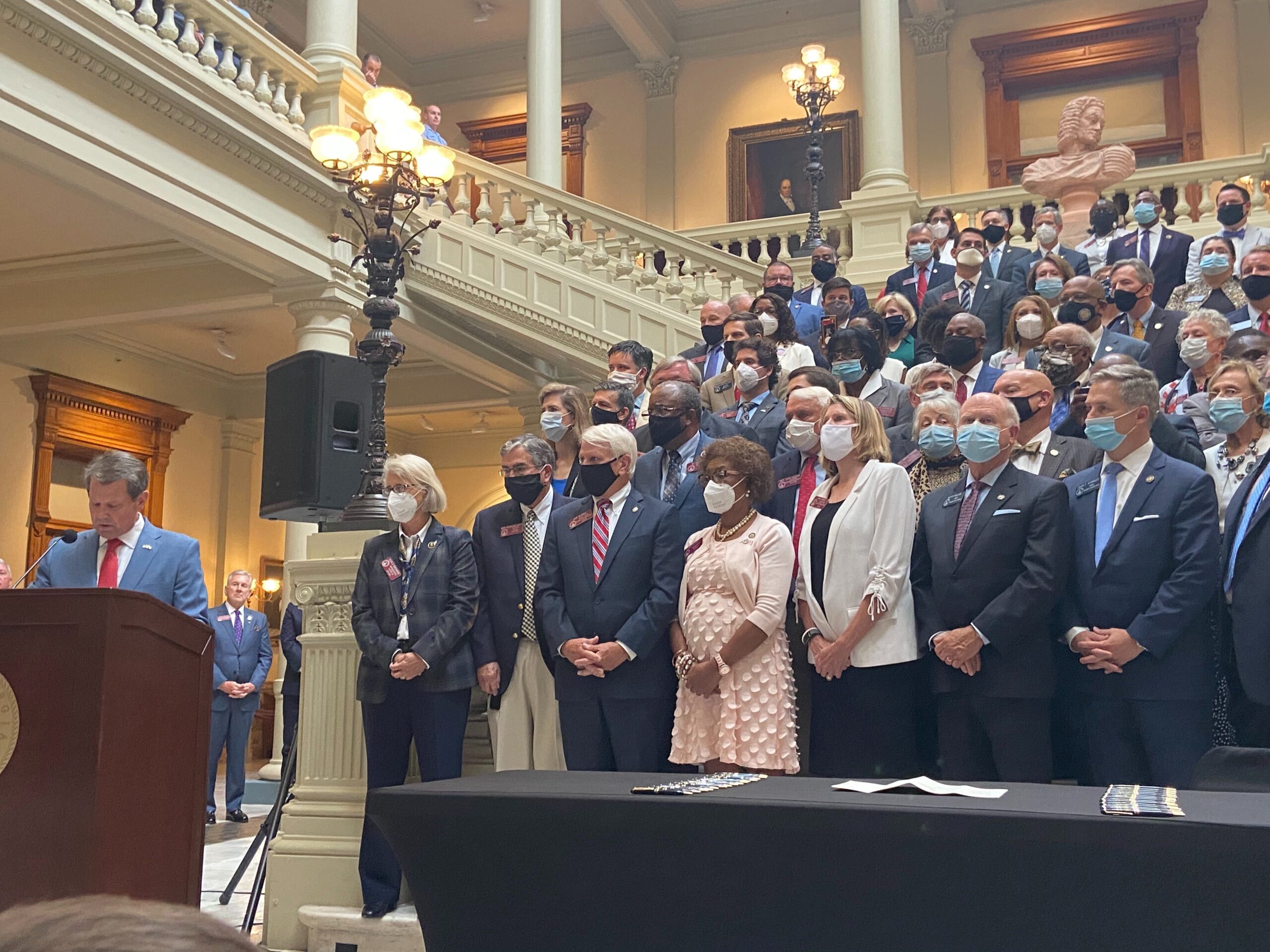How Senators Negotiated Georgia’s Hate Crimes Bill And The Wounds It Exposes

A bipartisan group of lawmakers looks on as Gov. Brian Kemp speaks at the signing of Georgia’s hate crime bill Friday.
Emma Hurt / WABE
Georgia’s hate crimes bill becomes law on Wednesday, and Sen. Bill Cowsert helped lead the effort on the Senate’s side.
Governor Kemp Signed HB 426 into law last week, which protects people from being targeted because of identities like race, gender, sexual orientation and religion. It also increases penalties for misdemeanors and felonies that are classified as a hate crime. Lawmakers also added a reporting requirement for law enforcement to help document and track hate crimes.
Cowsert told “Morning Edition” host Lisa Rayam that the bill has exposed many raw wounds, particularly after 25-year-old Ahmaud Arbery was shot to death while jogging through a neighborhood near Brunswick, Georgia, in February.
The three white men involved in Arbery’s killing have been indicted and charged with felony murder. Cobb County District Attorney Joyette Holmes announced the indictment earlier this month. Gregory McMichael, a retired Glynn County police officer and former investigator in the district attorney’s office; his son, Travis McMichael, who ultimately shot Arbery; and another driver William “Roddie” Bryan, were charged.
But Cowsert also defended a controversial part of the measure — removed before it was passed — that would have included police officers and law enforcement as a protected class.
“I think it’s so illogical to not want to support law enforcement from essentially biased, motivated, biased hate crimes against them – they’re the same people you’re asking to enforce this hate crimes law,” Cowsert said.
“I was very strongly in favor of it, and very strongly surprised that anybody would oppose that.”
Several Republican state senators attempted to add first responders as a protected class to the bill as the clock threatened to run out during the last days of the legislative session.
Democrats and groups, including the ACLU of Georgia, pushed back. Eventually, senators created a separate measure, H.B. 838, which also passed both houses last week. It adds “bias-motivated intimidation” against someone who is a first responder into the criminal code.
Cowsert said he gets that in this politically charged climate, with ongoing protests over police brutality and the deaths of African Americans at the hands of law enforcement, adding that protected class would be up for debate.
“We have been very good on all sides of listening to concerns,” Cowsert said.
“Law enforcement is perceived as the oppressor. It was very hard to negotiate that.”
Lily Oppenheimer contributed to this report.
For a deeper exploration of Ahmaud Arbery’s story, listen to WABE’s podcast, “Buried Truths.” Hosted by journalist, professor, and Pulitzer-prize-winning author Hank Klibanoff, season three of “Buried Truths” explores the Arbery murder and its direct ties to racially motivated murders of the past in Georgia.








